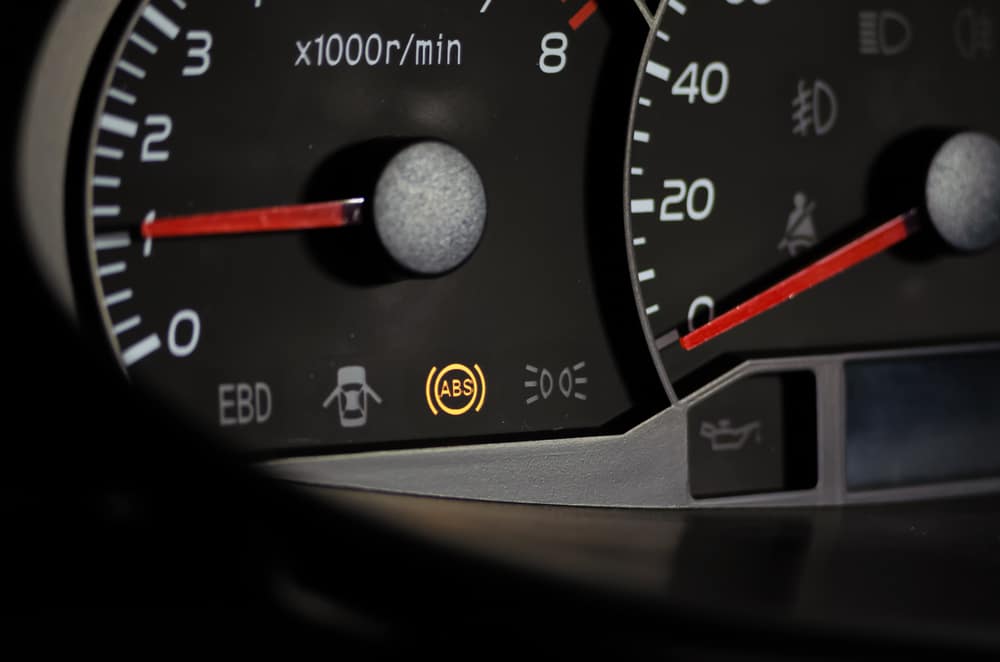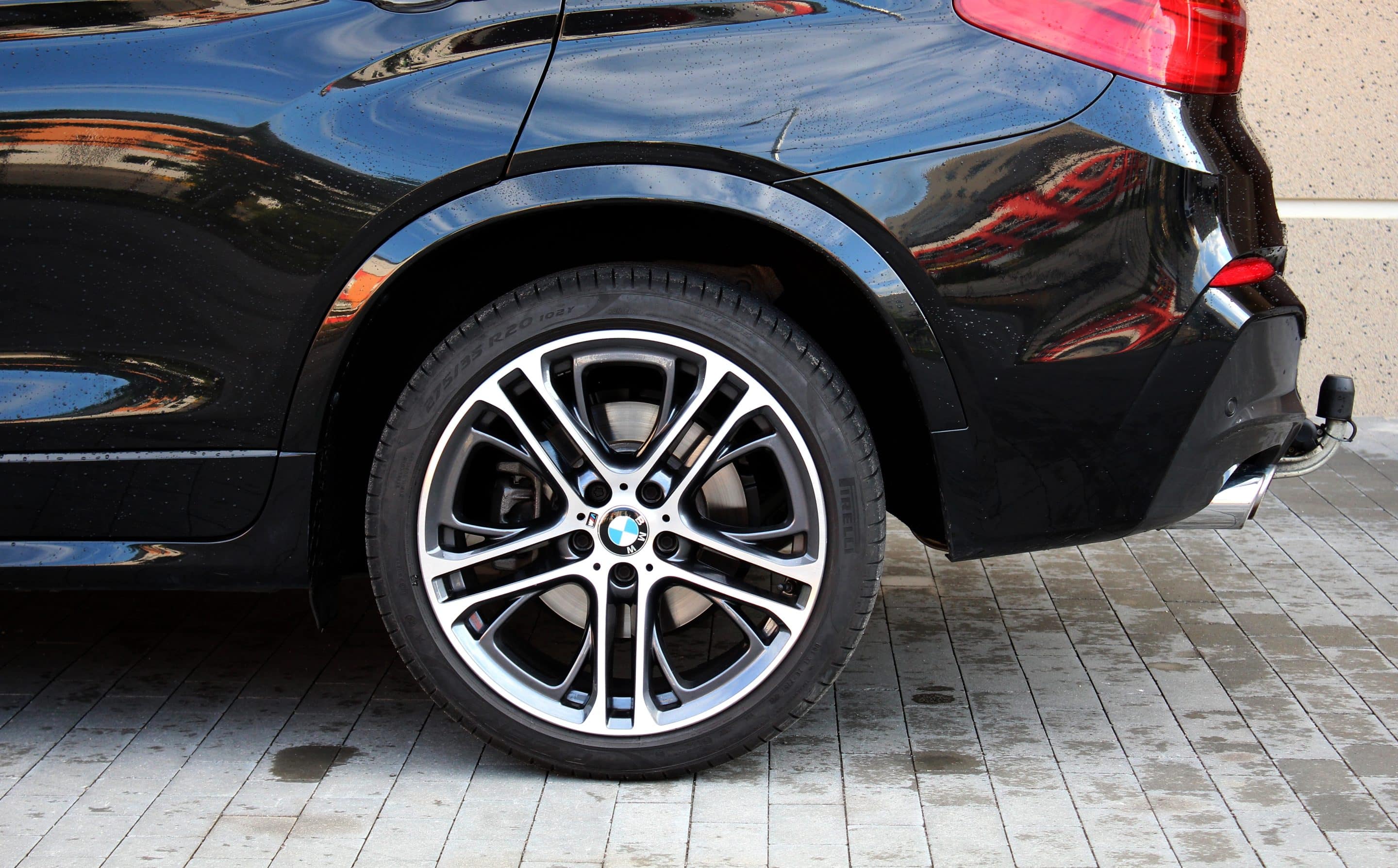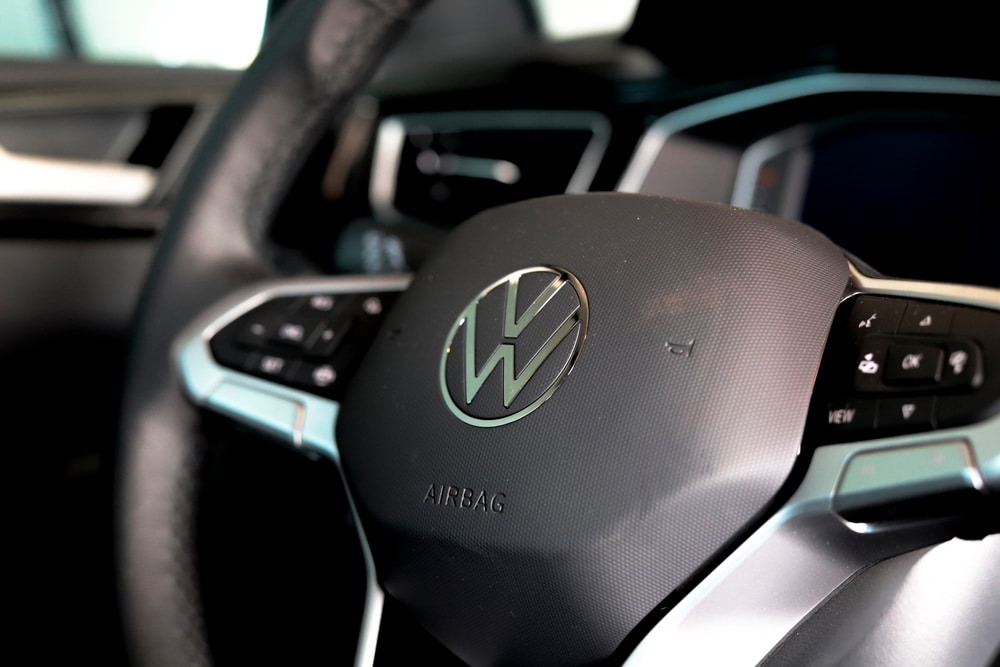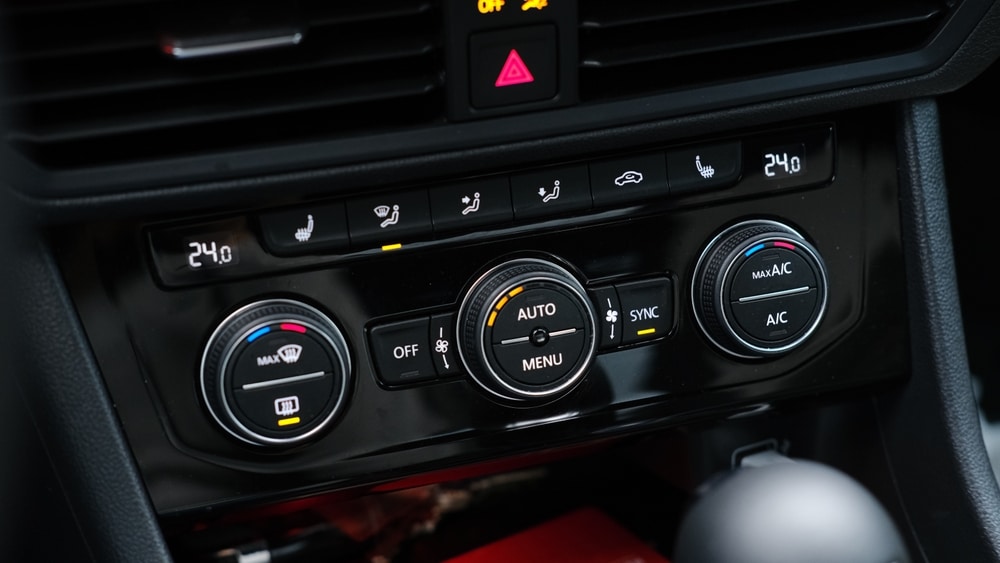Anti-Lock Brakes
You’re driving through Camberley when the traffic ahead grinds to a sudden halt. You hit the brake pedal hard. But instead of slowing safely, the wheels seize, the tyres screech, and the car skids. You try to steer, but it’s too late. One split-second thought flashes through your mind: “I should’ve had that ABS light looked at.” It had been on for a while, but booking in kept slipping down the list.
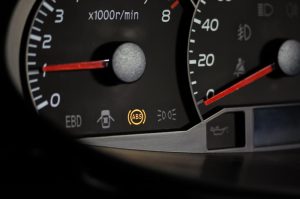
Your car’s anti-lock braking system (ABS) is designed to prevent this exact situation. It helps you steer while braking sharply, especially in emergencies. But when the system isn’t working, it’s not just about stopping distance — it’s about control. And without ABS, you may not have enough of it.
At JDK Automotive in Camberley, we help drivers from Farnborough and across Surrey fix ABS faults before they escalate. If your ABS warning light is on, don’t ignore it. When your ABS isn’t working, the difference can be that crucial few feet that help you avoid a nasty collision.
In this blog, we’ll explain what ABS actually does, how it works, and the signs that your system may be compromised.
Let’s take a deeper look…
What Your ABS System Is Designed to Do
Anti-lock brakes are built to stop your wheels from locking during hard braking, but also to help you maintain steering control. It’s not simply about stopping faster. It can be the difference between steering out of trouble or a nasty collision.
Without ABS, slamming the brakes can cause the wheels to seize. When that happens, your tyres lose grip, and your ability to steer vanishes. If you’re trying to avoid a car, a cyclist or an obstacle, you may not be able to change direction in time. The ABS prevents this by automatically adjusting brake pressure to each wheel in rapid bursts, keeping them turning just enough to hold traction on the road.
In other words, ABS doesn’t just help you stop — it helps you stay in command of the vehicle when you need it most.
How Anti-Lock Brakes React in Real Time
Your ABS system is constantly monitoring your wheels, though it might appear to be inactive. But the moment one wheel starts to decelerate too quickly under braking, a sign that it’s about to lock, ABS springs into action.
Each wheel is fitted with a speed sensor that sends data to the ABS control unit. If the control unit detects that one wheel is slowing faster than the others, it sends signals to the hydraulic modulator to reduce brake pressure at that wheel. As soon as traction is restored, pressure is reapplied. This cycle of releasing and reapplying pressure happens multiple times per second, far faster than any human could do manually.
You might feel a pulsing sensation in the brake pedal when this happens. That’s perfectly normal. It means the system is working exactly as intended, helping you maintain grip and steering control.
But any fault within the system – a failed sensor, the modulator not responding correctly, or anything else – the whole system may stop working. That’s when the ABS warning light will come on and it’s your signal to call JDK Automotive on 01276 535585.
Where the ABS Components Are Located in Your Vehicle
The anti-lock braking system is made up of multiple components, all working together to prevent wheel lock. Here’s where the key parts are typically found:
- Wheel speed sensors – These are mounted near each wheel hub, usually close to the brake discs. Their job is to constantly measure how fast each wheel is rotating and send that information to the control unit.
- ABS control unit (ECU) – This electronic module is normally positioned in the engine bay. It receives sensor data and makes rapid decisions about when and how to adjust brake pressure.
- Hydraulic modulator or ABS pump – Also found under the bonnet, the modulator responds instantly to the ECU’s commands. It uses valves and a pump to reduce, hold, or increase brake pressure in real time.
- Brake lines and solenoid valves – Built into the ABS hydraulic modulator, solenoid valves work in sync with the brake lines to regulate pressure at each wheel. During hard braking, the valves open and close in fast cycles to either hold, reduce, or increase fluid pressure, preventing wheel lock and helping maintain control. This all happens within fractions of a second, many times per second.
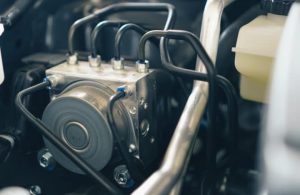
Each part needs to be working perfectly for the system to do its job. If something feels off when braking or your ABS light is staying on, JDK Automotive in Camberley can inspect and repair the system before it affects your safety. For a full overview of how your vehicle’s braking system works, check out our related guides on Brake Pads, Brake Discs, and The Braking System Explained.
The Safety Systems That Depend on ABS to Work
ABS isn’t just a standalone system — it forms the backbone of other stability features that rely on its sensors and control unit to function correctly. If your ABS fails, these systems can also become compromised.
- Electronic Brakeforce Distribution (EBD) – This system automatically shifts braking force between the front and rear wheels depending on road conditions and vehicle load. It’s designed to prevent the rear wheels from locking, especially during sudden stops or when carrying heavy loads.
- Traction Control System (TCS) – If a wheel begins to spin during acceleration, TCS steps in by applying brake pressure to the affected wheel and adjusting engine power. This helps the tyres regain grip and avoid excessive wheelspin.
- Electronic Stability Programme (ESP) – ESP detects when your car starts to drift away from your intended path. It brakes individual wheels to correct oversteer or understeer, helping you stay in control during sudden swerves or tight turns.
Each of these systems needs accurate, real-time input from your ABS. If even one sensor goes down, you may lose more than just anti-lock support — your car’s entire stability network could be affected.
At JDK Automotive, we’re equipped to diagnose faults across all of these systems. If your ABS warning light is on, or you’ve noticed changes in handling or grip, it’s time to get it checked.
What Could Be Stopping Your ABS from Working Properly
Your ABS is designed to help you stay in control, but it can only do that if every part is functioning as it should. When something disrupts the system’s ability to read data or control pressure, that protection can disappear in an instant.
One of the most common issues is the road itself. On snow, ice, or loose gravel, the tyres may struggle to maintain traction. While ABS can still support steering in these conditions, it can’t replace the grip that the surface doesn’t provide. That’s why careful driving is still essential in poor weather.
Then there are internal faults. A single ABS sensor sending unreliable data, a delayed modulator response, or a corroded connection can stop the system from activating. When this happens, you’ll usually see the ABS light appear on your dashboard.
At JDK Automotive in Camberley, we don’t leave anything to chance. If your system isn’t responding correctly, we’ll carry out a thorough evaluation and pinpoint the issue before it becomes a risk.
Warning Signs That Your ABS Has Stopped Working
If your anti-lock braking system fails, your regular brakes may still feel normal, but that vital backup support won’t be there when you need it most. The system is designed to help you in critical moments, and without it, your ability to stop or steer under pressure could vanish.
These are the key signs to look out for:
- The ABS light stays on
A brief flash when you start the car is part of the system check. But if the light stays illuminated while driving, the ABS has detected a fault and may be disabled. Your brakes will still function, but the anti-lock safety net won’t be there.
- No pedal feedback during hard braking
If you slam the brakes and don’t feel the typical vibration or pulsing through the pedal, the ABS may not be engaging. That feedback is a sign the system is working.
- Other dashboard warning lights
Sometimes, an ABS fault can trigger the main brake warning light or other alerts. This usually points to a deeper issue in the braking system that needs immediate attention.
If any of these symptoms appear, call JDK Automotive in Camberley. Our technicians will run a complete diagnostic check and resolve the fault before it puts your safety at risk.
Why You Should Never Ignore the ABS or Brake Warning Light
You may find it tempting to brush off a warning light when your car still feels like it’s driving fine. But when it comes to systems like ABS, that glowing icon may be the only warning you get before the safety net disappears.
If the ABS warning light stays on, it means a fault has been detected. Your brakes will still operate under normal conditions, but the system that stops the wheels from locking, helps you steer while braking, and regulates pressure in an emergency will not. By then, it could be too late to stop a collision.
Once a fault is triggered, the system often shuts itself down for safety. That means no ABS support until the issue is properly diagnosed and fixed.
It’s also worth noting that an illuminated ABS light is an MOT failure. If the brake warning light is showing as well, that’s a second serious fault — and a clear signal that your vehicle is no longer road-safe.
At JDK Automotive in Camberley, we’ve seen how quickly a small issue can turn into a major risk. If your dashboard is telling you something’s wrong, don’t ignore it. Call us on 01276 535585 and let our team get to the root of the problem.
Trust JDK Automotive in Camberley to Keep Your ABS Working
Your ABS is a critical part of your car’s safety system. When it’s working, you might not even notice it. But if a fault develops, it can make all the difference in an emergency stop.
At JDK Automotive in Camberley, we specialise in diagnosing and repairing ABS faults using advanced diagnostics and years of experience. Whether it’s a sensor issue, wiring fault, or modulator failure, we’ll get to the root of the problem.
With JDK Automotive, you get:
- Skilled technicians with ABS system expertise
- Clear, honest advice from a trusted local team
- A 12-month parts and labour guarantee on all repairs
We have a {{average-rating}} star Google rating from {{review-count}} satisfied customers.
Call us today on 01276 535585 to book a brake system check or get expert help with your ABS light. We’re proud to keep drivers safe across Camberley, Farnborough and the surrounding area.
